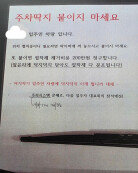A 20% Pay Raise with Keeping Monthly and Annual Paid Leaves in Safety
A 20% Pay Raise with Keeping Monthly and Annual Paid Leaves in Safety
Posted July. 17, 2003 21:33,
Korean industries have been swept by conflict over the five-day workweek.
Industry participants are engaged in discord over pending issues even after metal industry workers, in negotiations across different industry levels, reached temporary agreement over introduction of five-day workweek system without pay-cut.
The businesses claimed the agreement invalid, saying yesterday that out of participating negotiators representing 100 small and medium sized enterprises (SMEs) including auto part manufacturers, 38 businesses took back the representing commission from the negotiators. General strikes this summer is expected to enter a new phase as metal workers` unions pledged to go on more concentrated strikes.
In the meantime, businesses denounced, “the agreement, reached days ago, included workers` demands, which was beyond the capability of SMEs.”
Hyundai Motor unionists announced their plan to launch general strikes on July 18, and partial walkout from July 21 to 23 to win the five-day workweek. Kia Motor union also pledged to join Hyundai union`s strike on July 23 and 24 unless the management declines the 40-hour workweek system. In a response, staff workers in managerial positions and the management at Hyundai Motor Company have been and will be working even on weekends until the end on this month, starting yesterday.
The business community concerns of spillover impact over industries
The business circle has raised concerns of the partial labor movement spreading into overall industries as metal workers, mostly from SMEs, won approval of the five-day workweek from businesses.
“When the Tripartite Committee has not reached agreement over the five-day workweek, an introduction of the system in individual companies will undoubtedly affect the business sector”, said Lee Dong-eung, policy bureau head at Korea Employers Federation (KEF). He also said, “Businesses must not give up the system at any costs.”
Korean leading groups including Samsung and LG have implemented the five-day workweek, but in which monthly and annual paid leaves are offset. Therefore, an introduction of the system to SMEs will unstable other businesses as well.
“Some SMEs have adopted the five-day workweek while guaranteeing monthly and annual paid leaves as unionists requested”, said Pak Won-yong, Managing Director at Valeomando, who represented the management in negotiations with metal workers. He expressed concomitant difficulties in corporate management, saying “we had no choice but to succumb to the union in a situation we had to retain the business as usual.”
A possibility of losing competitiveness
Business associations including the Federation of Korean Industries (FKI) noted that a four-hour reduction in working on a Saturday caused a 13.6% raise in labor cost and when compensation for untapped monthly and annual leaves added labor cost grows over 20%. It is because SMEs, whose workers generally work 53 hours a week, should either pay for overtime work of find replacement in case legal working hours shrink from current 40 to 40 hours per week.
In this context, if labor unions` demands are accepted, local companies will have to pay 60 trillion won more every year in aggregate.
Bae Gyu-sik, researcher at Korea Labor Institute, said “the five-day workweek should be considered as a way to improve living standard on the one hand and from the view of national competitiveness on the other hand.“ He also added to say “To prevent the situation from going worse, the government should pass its own bill respecting both sides.”
Yeon-Su Shin Na-Yeon Lee ysshin@donga.com larosa@donga.com







